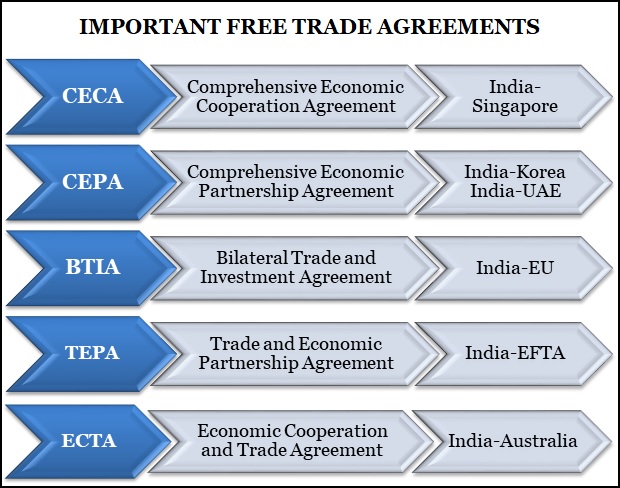7667766266
enquiry@shankarias.in
India and the UK are negotiating a Free Trade Agreement (FTA) that will reduce tariffs and non-tariff barriers on goods and services.

|
India-UK Free Trade Agreement (FTA) |
To know more about the lessons to be learnt from UK on FTA, click here |
For India
For UK
References